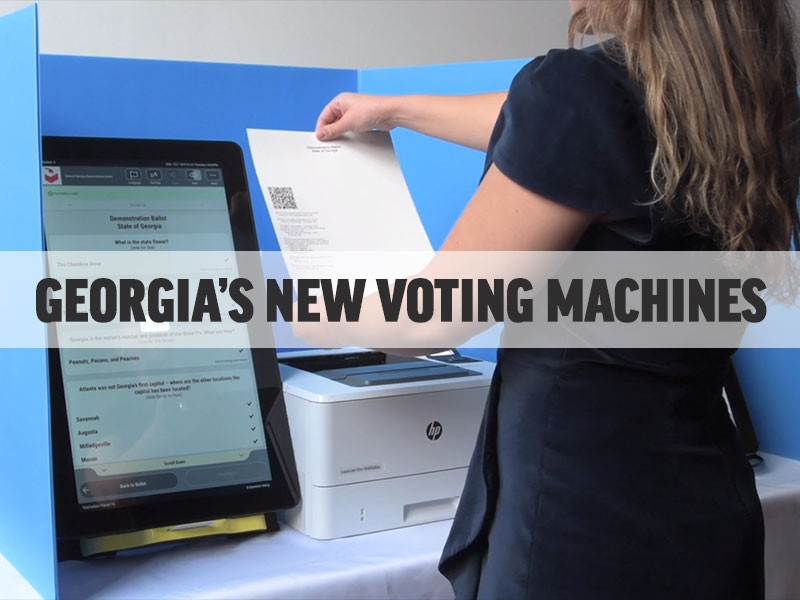ATLANTA — A federal judge has declined to block the use of Georgia's electronic voting system in a long-running lawsuit that alleged that the system is vulnerable to attack and has operational issues that could deprive voters of their constitutional rights.
U.S. District Judge Amy Totenberg found that the individual voters who challenged the state's voting system did not prove that the problems they identified prevented them from voting, diluted their votes or kept their votes from being counted. She wrote in a ruling Monday that they lack standing to sue and she is unable to consider the merits of their claims.
Georgia election officials have consistently said the system is secure and reliable and that it is up to the state to decide how it conducts elections.
The ruling follows several years of intense focus on Georgia's elections in the aftermath of President Donald Trump's narrow loss in the state to Democrat Joe Biden in the 2020 presidential election. Trump claimed that election fraud cost him victory, and had challenged the Dominion Voting Systems machines used in Georgia.
But the lawsuit at issue long precedes those claims. It was originally filed in 2017 by several individual voters and the Coalition for Good Governance, which advocates for election integrity, and targeted the outdated, paperless voting system used at the time. After Georgia purchased a new voting system in 2019, the suit was amended to target that system.
The election system used statewide by nearly all in-person voters includes touch screen voting machines that print ballots with a human-readable summary of voters’ selections and a QR code that a scanner reads to count the votes. The human-readable summary only lists the voter's choice, not the names of other candidates or the details of a ballot question.
The voters who filed the lawsuit argued that since people can't read a QR code, they are unable to ensure that what the scanners are reading accurately reflects their selections. They also asserted that it is burdensome for voters to have to check their selections twice — once on the voting machine screen and again using the limited information on the printed ballot.
They asked Totenberg to stop the state from using the touch screen voting machine system as the standard method for in-person voting.
“Although Plaintiffs have not ultimately prevailed on their legal claims, their work has identified substantial concerns about the administration, maintenance, and security of Georgia’s electronic in-person voting system,” Totenberg wrote. “These investigative and educational efforts have prompted meaningful legislative action to bolster the transparency and accountability of Georgia's voting systems.”
In addition to other changes, a law passed by Georgia lawmakers last year requires QR codes to be removed from ballots by July 2026, though she noted that funding and government action would be required to implement that change.
The judge outlined the evidence presented at trial in early 2024, including the findings of University of Michigan computer scientist and professor J. Alex Halderman. He testified that an attacker could potentially alter the QR codes to change voter selections, install malware on the voting machines and obtain county-wide passwords, among other issues, she wrote.
A report Halderman wrote in 2021 as part of this lawsuit prompted the federal Cybersecurity and Infrastructure Security Agency in 2022 to put out advisory recommending steps that should be taken by election officials in places that use the voting machines that Georgia uses. Georgia election officials in 2023 said they planned to wait until after the 2024 election to install a software update to address some of the security flaws, saying they had taken other measures to protect the state's voting system.
Totenberg's ruling puts an end to a long and twisting path. Throughout the process she has repeatedly raised concerns about the state's voting system and practices and, early on, accused state officials of ignoring problems. In an August 2019 ruling, she prohibited the state from using its antiquated paperless voting machines beyond that year. The state had agreed to purchase new voting machines from Dominion a few weeks earlier and scrambled to deploy them ahead of the 2020 election cycle.









